- You are here:
AUCD Home
- Resources
- Trainees & Early Career Professionals
- April: Autism Awareness and Acceptance
April: Autism Awareness and Acceptance
April 1, 2015
~ See below for a full listing of all of the April 2015 campaign posts to date. ~
AUCD envisions a future in which all people - including those living with autism and related developmental disabilities - are fully included, participating members of their communities. We advocate for equitable access to supports and services that lead to self-determination, independence, productivity, and a healthy and satisfying quality of life.
Why Autism?
In December 2007, the United Nations (UN) General Assembly designated April 2 as World Autism Awareness Day. First observed in 2008, it is one of only three official disease-specific UN days. Its purpose is to bring international attention to this complex developmental disorder that affects as many as 1 in 68 children born today, according to estimates from the Centers for Disease Control and Prevention (CDC).
Why AUCD?
Our network of 67 UCEDDs, 43 LENDs, and 15 IDDRCs provide cutting edge information and resources; train medical and community professionals in best practices; conduct research on community supports and medical advances; advocate for meaningful policy changes; and involve the voices of people with autism and other developmental disabilities every step of the way.
April 2015
AUCD staff used Facebook (@AUCDnetwork) and Twitter (@AUCDnews) to show how network members across the country are positively impacting the lives of individuals with autism, their families, and their communities - with a focus on the entire lifespan.
AUCD highlighted the voices of people with autism and their family members, organizational partnerships, training materials, community events, resources, and legislative efforts. The four "categories" of posts were classified by different colors:
- Data and research (red)
- Identification and intervention (orange)
- Family support and resources (green)
- Policy and advocacy (blue)
April 2015 Posts
Following is the complete listing of posts for April 2015. Click on an image to be taken to another page with even more information.
![]() _
_
|
space
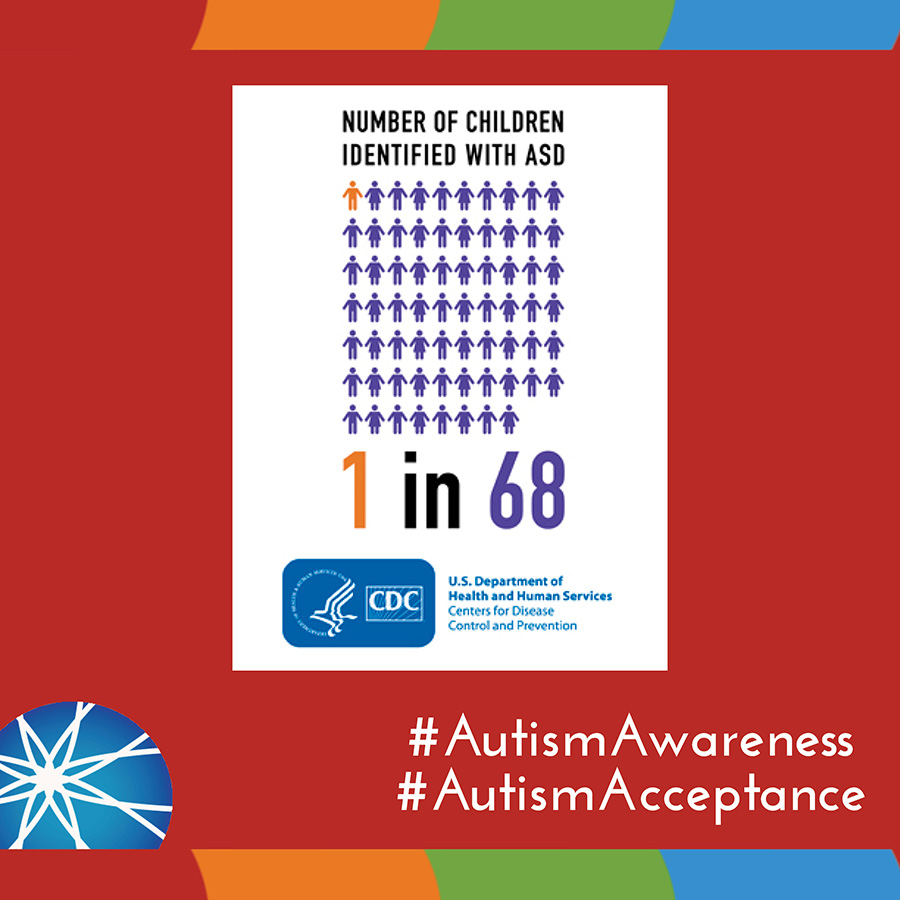 According to the most recent CDC estimates, 1 in every 68 children is born with autism. As prevalence increases, so too does the need for research, training, service, and advocacy. AUCD and its network members work in all four of these important areas. According to the most recent CDC estimates, 1 in every 68 children is born with autism. As prevalence increases, so too does the need for research, training, service, and advocacy. AUCD and its network members work in all four of these important areas.
|
pace
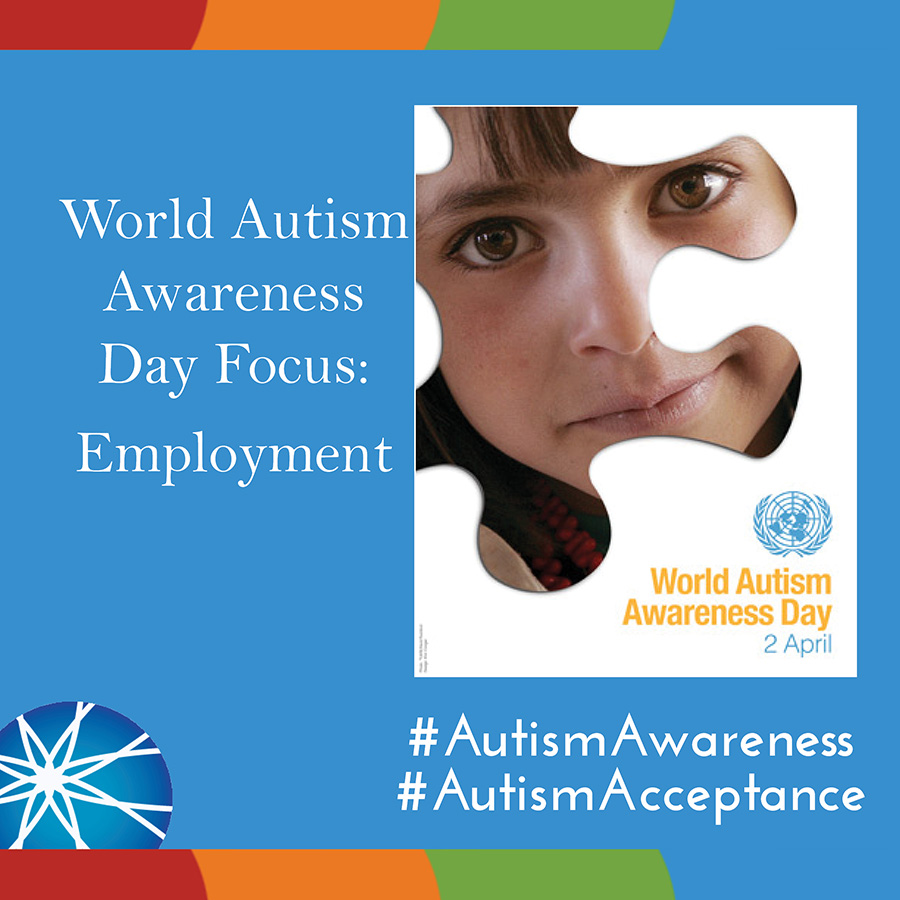 The UN recognizes April 2 as World Autism Day, focusing in 2015 on the advantage people with autism may have when it comes to certain types of employment. The UN recognizes April 2 as World Autism Day, focusing in 2015 on the advantage people with autism may have when it comes to certain types of employment.
|
|
space
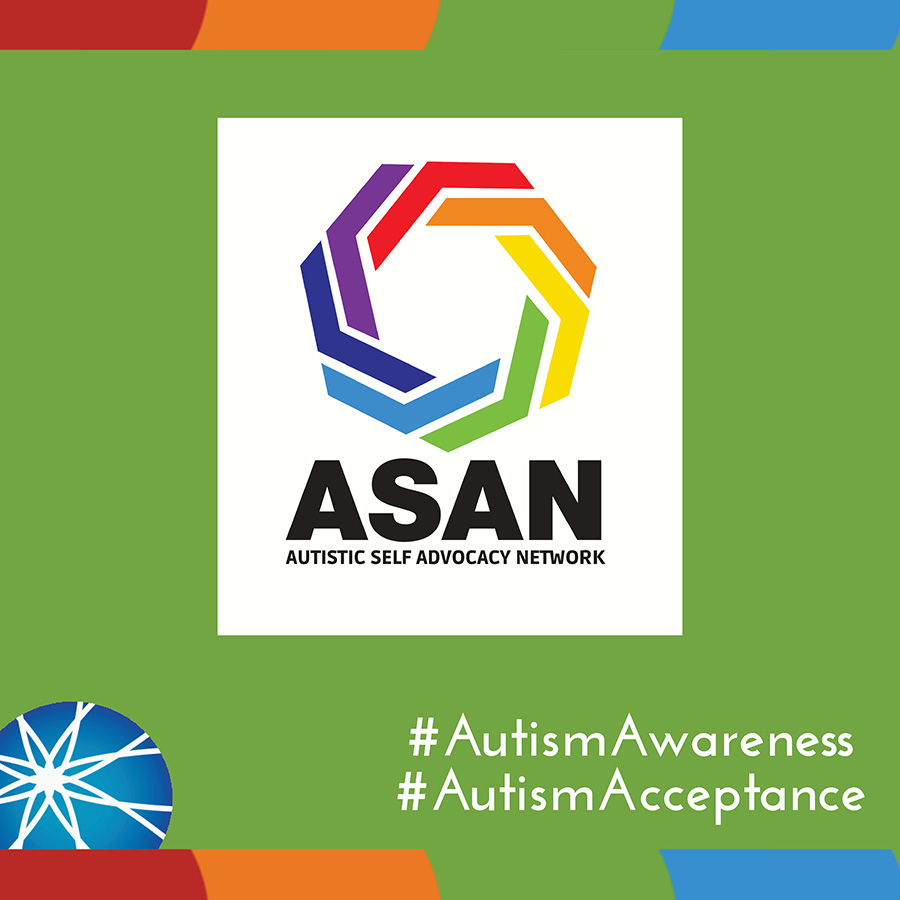 It takes a diverse community of stakeholders to improve the quality of life that people with autism and their families experience, and no voices are more important than those of people with autism themselves. AutisticAdvocacy.org has a great online resource library that includes books, reports, and other tools to help self-advocates shape their own futures. It takes a diverse community of stakeholders to improve the quality of life that people with autism and their families experience, and no voices are more important than those of people with autism themselves. AutisticAdvocacy.org has a great online resource library that includes books, reports, and other tools to help self-advocates shape their own futures.
|
space
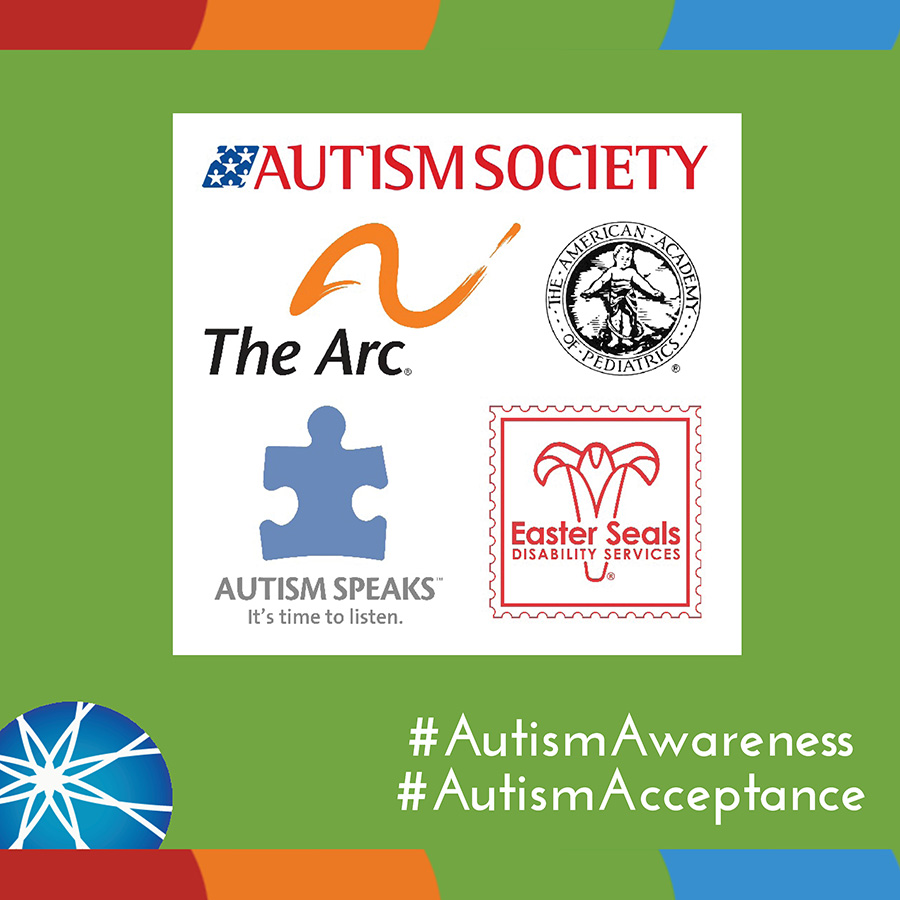 AUCD partners with several organizations that provide information and support to families who have a child (or adult family member) with autism. AUCD partners with several organizations that provide information and support to families who have a child (or adult family member) with autism.
|
|
space
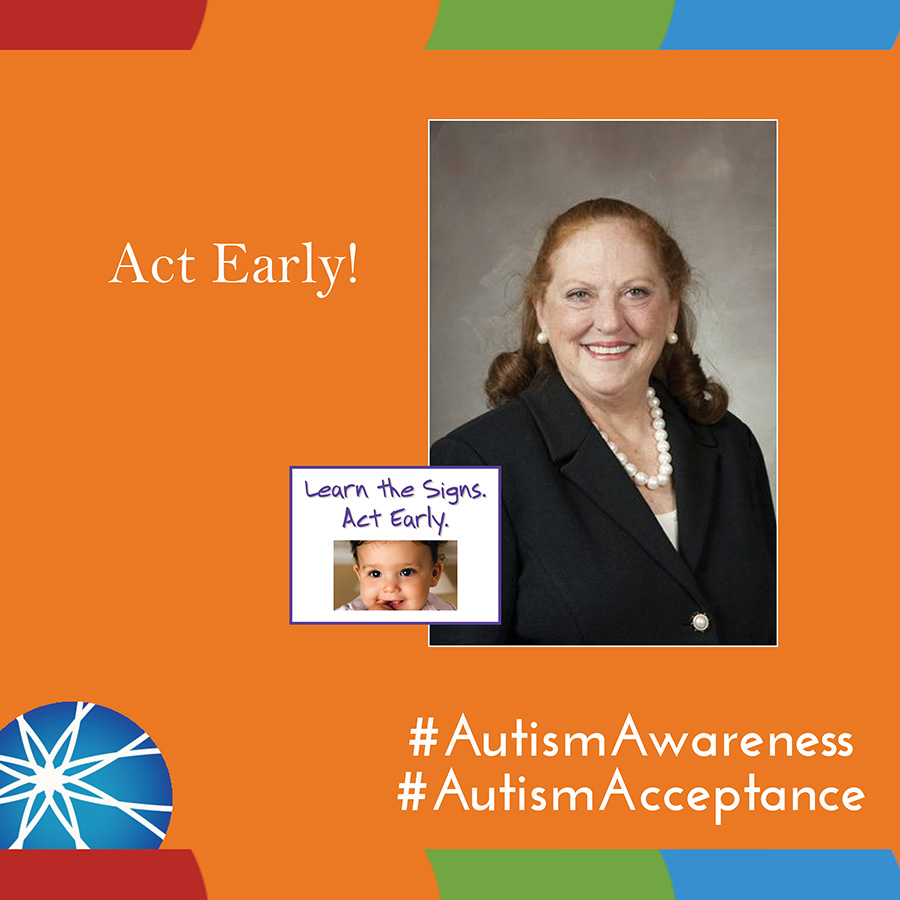 Dr. Pauline Filipek, director of The Autism Center at UT Health's Childrens Learning Institute in Houston and the Texas Act Early Ambassador, recently had an article on the importance of early identification. Dr. Pauline Filipek, director of The Autism Center at UT Health's Childrens Learning Institute in Houston and the Texas Act Early Ambassador, recently had an article on the importance of early identification.
|
space
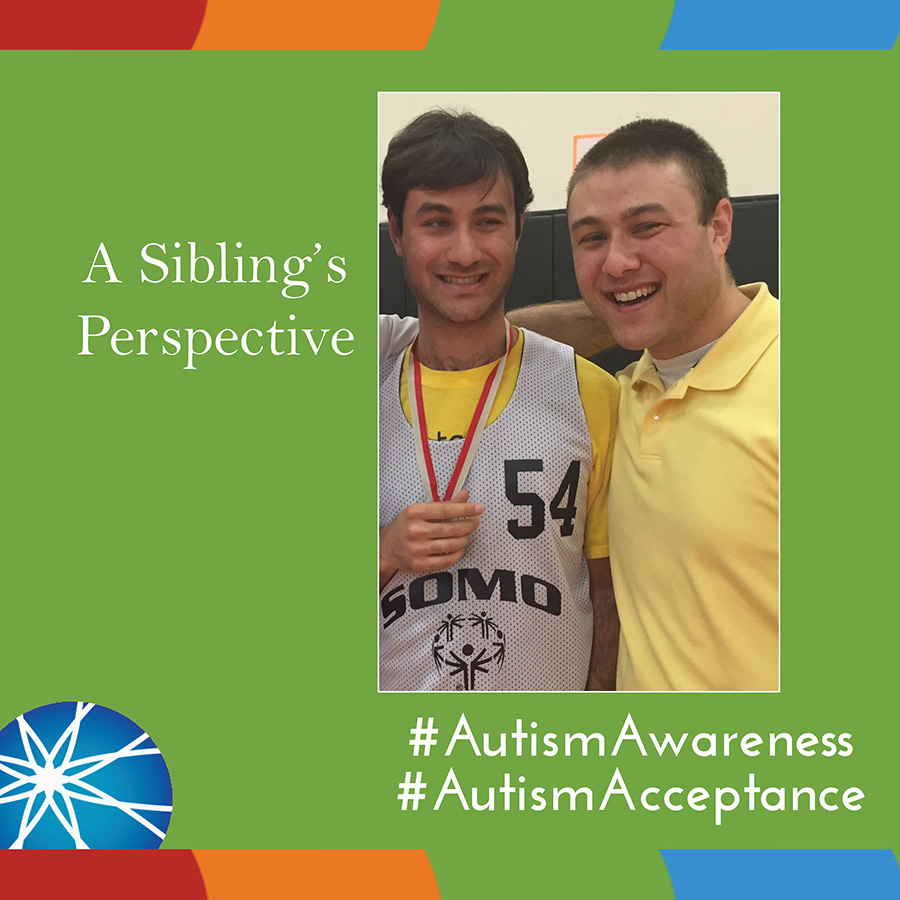 AUCD's Ben Kaufman has an adult brother with autism. Hear his interview with #policy4all‘s Liz Weintraub as they talk about their relationship, why siblings matter, and policies that can make a big difference for their family - and many others. AUCD's Ben Kaufman has an adult brother with autism. Hear his interview with #policy4all‘s Liz Weintraub as they talk about their relationship, why siblings matter, and policies that can make a big difference for their family - and many others.
|
|
space
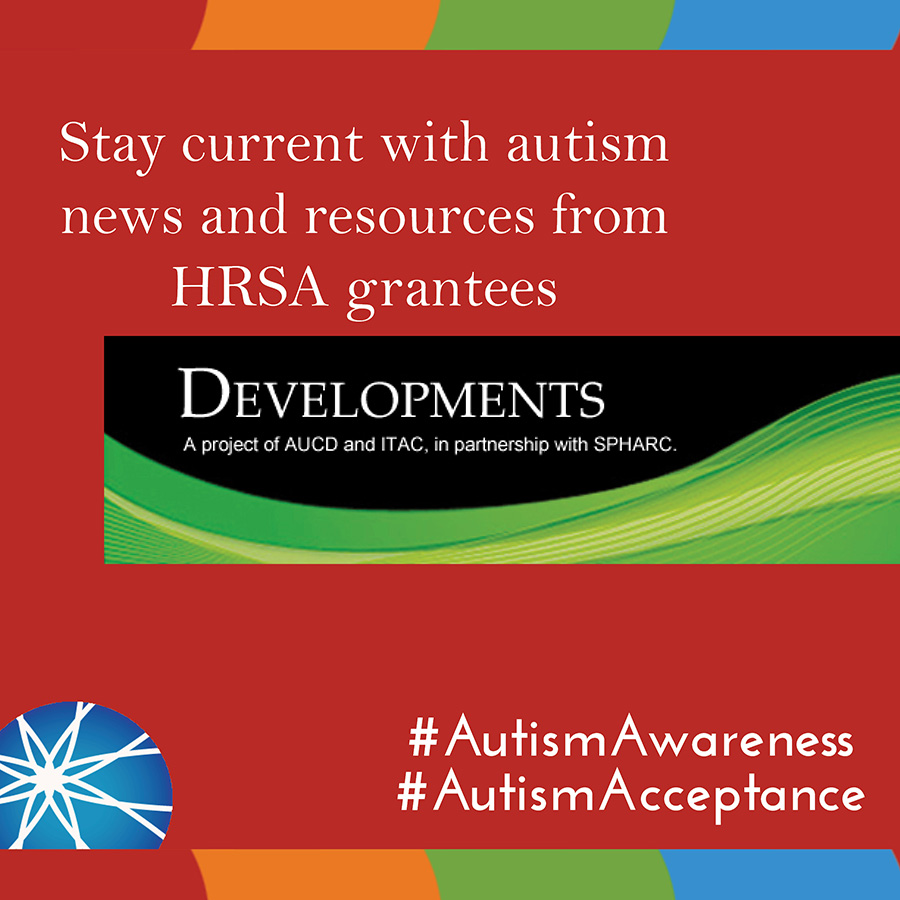 AUCD and AMCHP bring you the latest issue of Developments, a bi-annual newsletter that covers current news, activities, events, research, and other accomplishments related to autism and related developmental disabilities. Learn about a statewide registry in Rhode Island, a telehealth project in rural Iowa, and much more. AUCD and AMCHP bring you the latest issue of Developments, a bi-annual newsletter that covers current news, activities, events, research, and other accomplishments related to autism and related developmental disabilities. Learn about a statewide registry in Rhode Island, a telehealth project in rural Iowa, and much more.
|
space
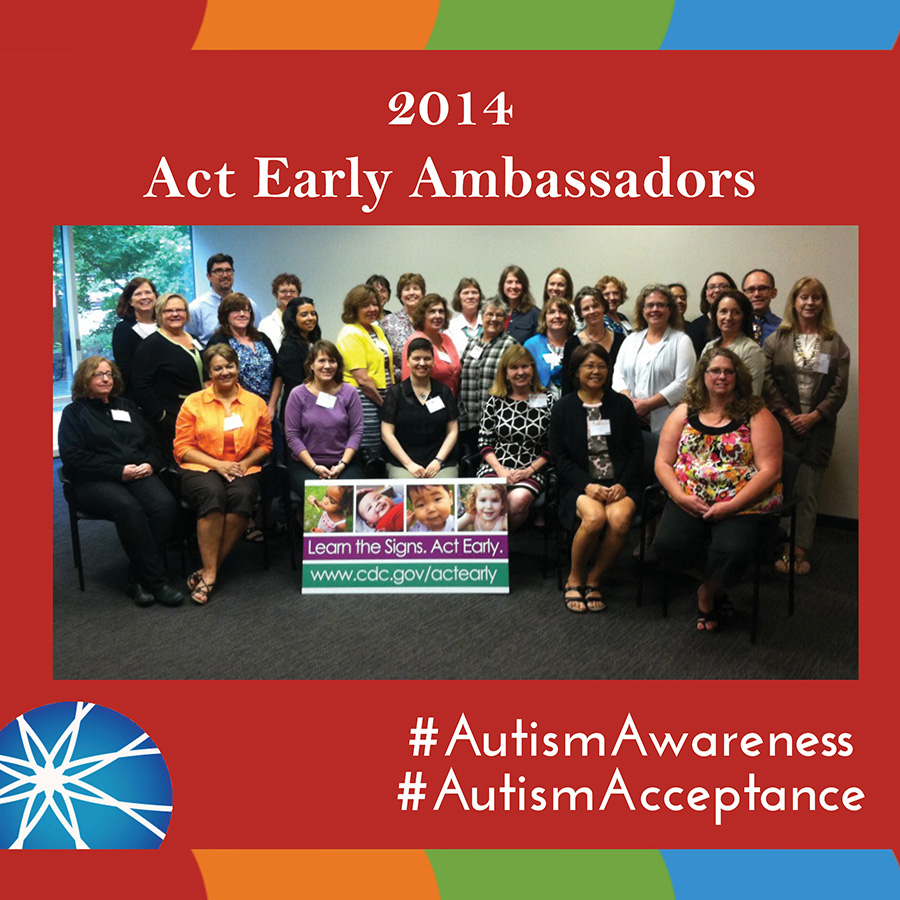 Act Early Ambassadors are liaisons to the CDC's "Learn the Signs. Act Early." program and work as community champions with programs that serve young children and their parents. Act Early Ambassadors are liaisons to the CDC's "Learn the Signs. Act Early." program and work as community champions with programs that serve young children and their parents.
Over the last three months alone, these 30 Ambassadors have distributed nearly 40,000 Learn the Signs. Act Early. materials and reached thousands. Over 18,500 parents, 12,000 media outlets, 3,600 early care & education providers, 1,400 healthcare professionals, and 850 family service providers have been given information about identifying the signs of a developmental delay and resources on how to connect with early identification programs.
|
|
space
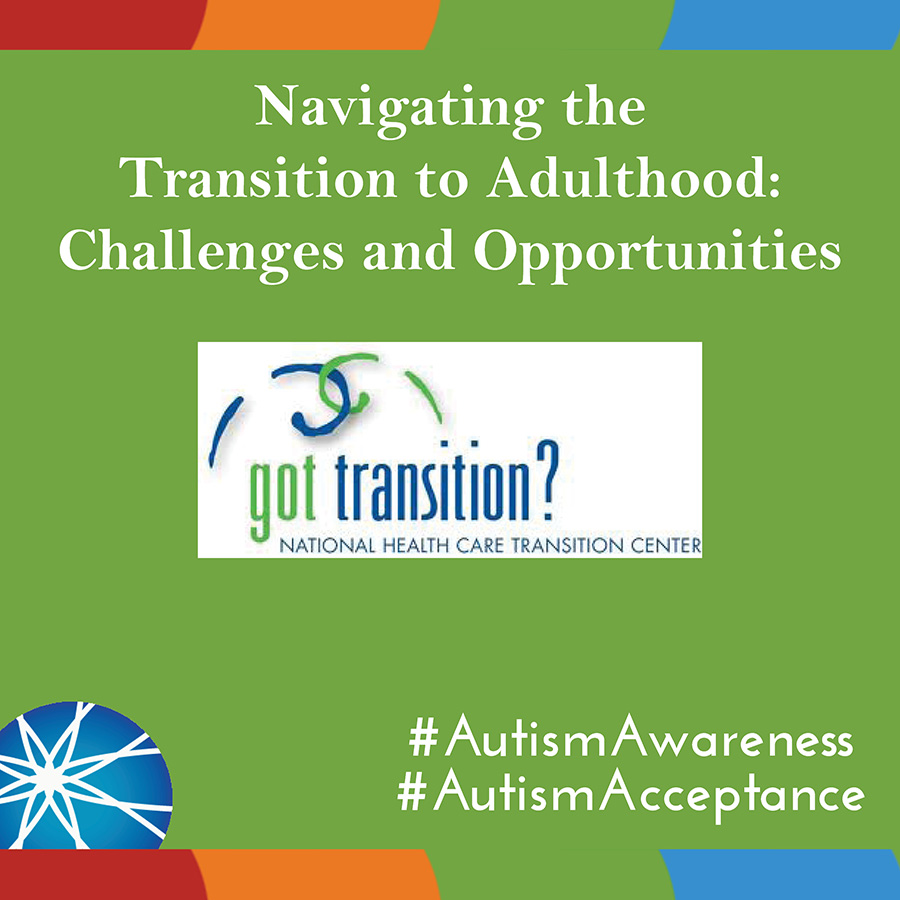 The transition to adulthood poses challenges and opportunities for people with autism and their families. Our colleagues at Got Transition have an extensive resource directory with valuable information for health care providers, researchers, policymakers, families, and self-advocates. The transition to adulthood poses challenges and opportunities for people with autism and their families. Our colleagues at Got Transition have an extensive resource directory with valuable information for health care providers, researchers, policymakers, families, and self-advocates.
|
space
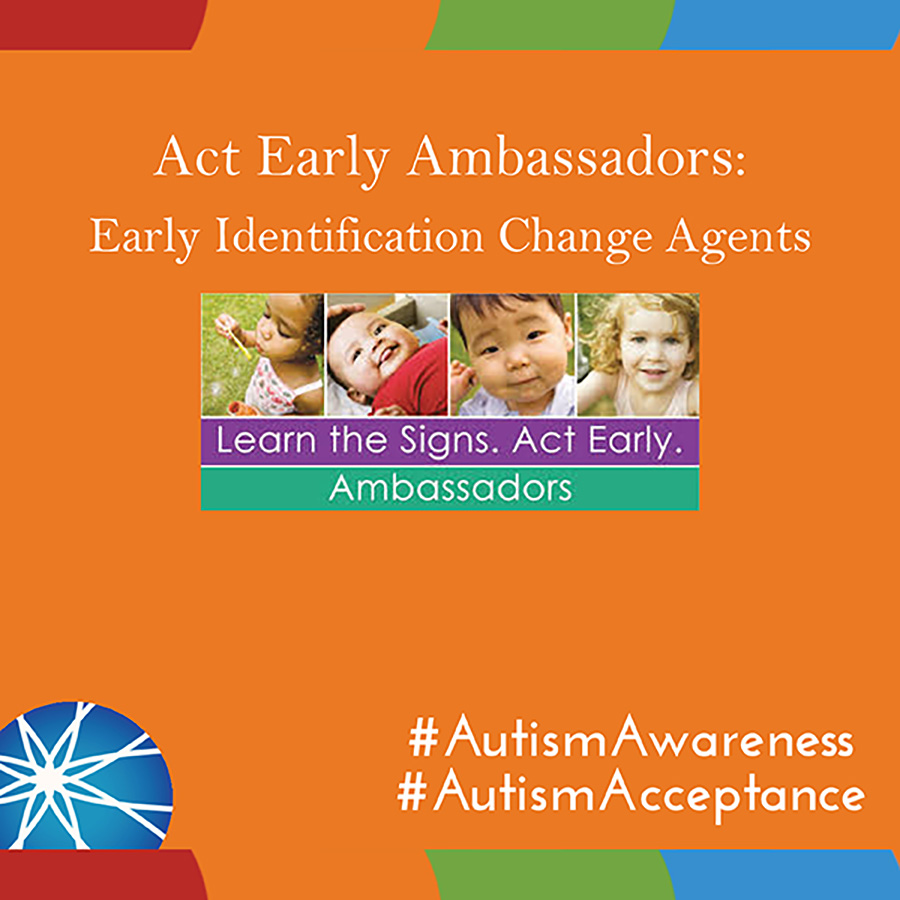 CA ActEarly Ambassadors Fran and Debra are working with WIC and LA County 211 to conduct telephone developmental screenings with parents of young children. In AR, Ambassador Peggy is collaborating to distribute LTSAE materials and create a tailored Family Choices brochures to help families choose early intervention services that meet their needs. CA ActEarly Ambassadors Fran and Debra are working with WIC and LA County 211 to conduct telephone developmental screenings with parents of young children. In AR, Ambassador Peggy is collaborating to distribute LTSAE materials and create a tailored Family Choices brochures to help families choose early intervention services that meet their needs.
|
|
space
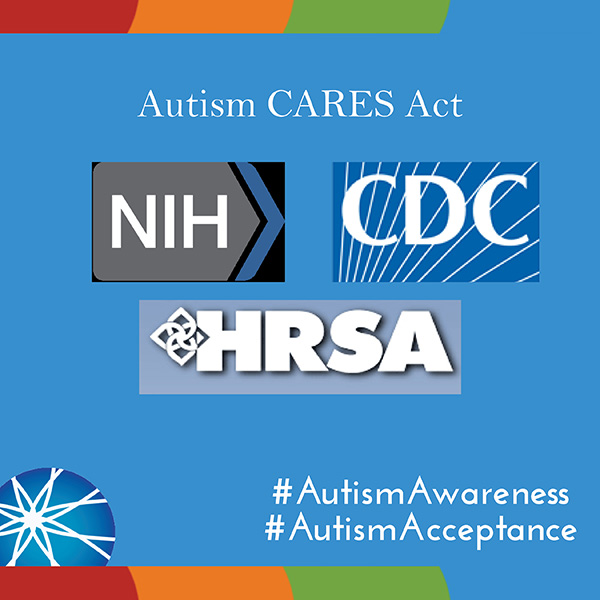 The Autism CARES Act of 2014 expands research and coordination at the NIH, increases public awareness and surveillance at the CDC, and expands interdisciplinary health professional training through HRSA. The Autism CARES Act of 2014 expands research and coordination at the NIH, increases public awareness and surveillance at the CDC, and expands interdisciplinary health professional training through HRSA.
|
space
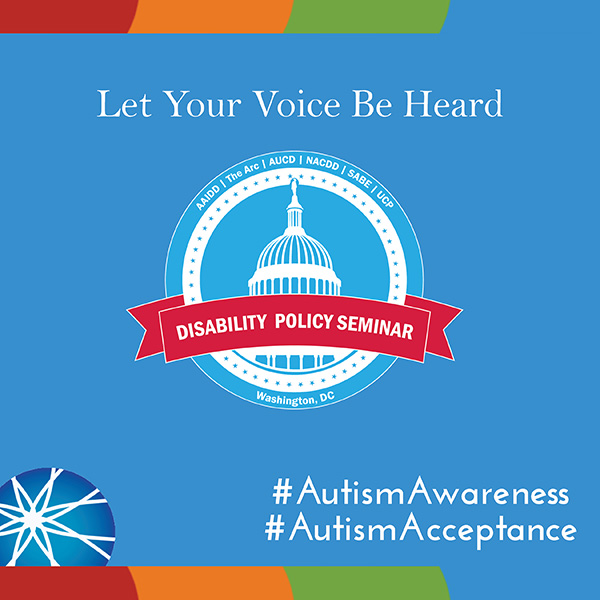 Today, hundreds of participants at the 2015 Disability Policy Seminar (including self-advocates, family members, and AUCD trainees) are learning about important Social Security and SSI protections, what the federal budget crisis means for people with autism and other developmental disabilities, and strengthening their advocacy skills with community leaders. Today, hundreds of participants at the 2015 Disability Policy Seminar (including self-advocates, family members, and AUCD trainees) are learning about important Social Security and SSI protections, what the federal budget crisis means for people with autism and other developmental disabilities, and strengthening their advocacy skills with community leaders.
|
|
space
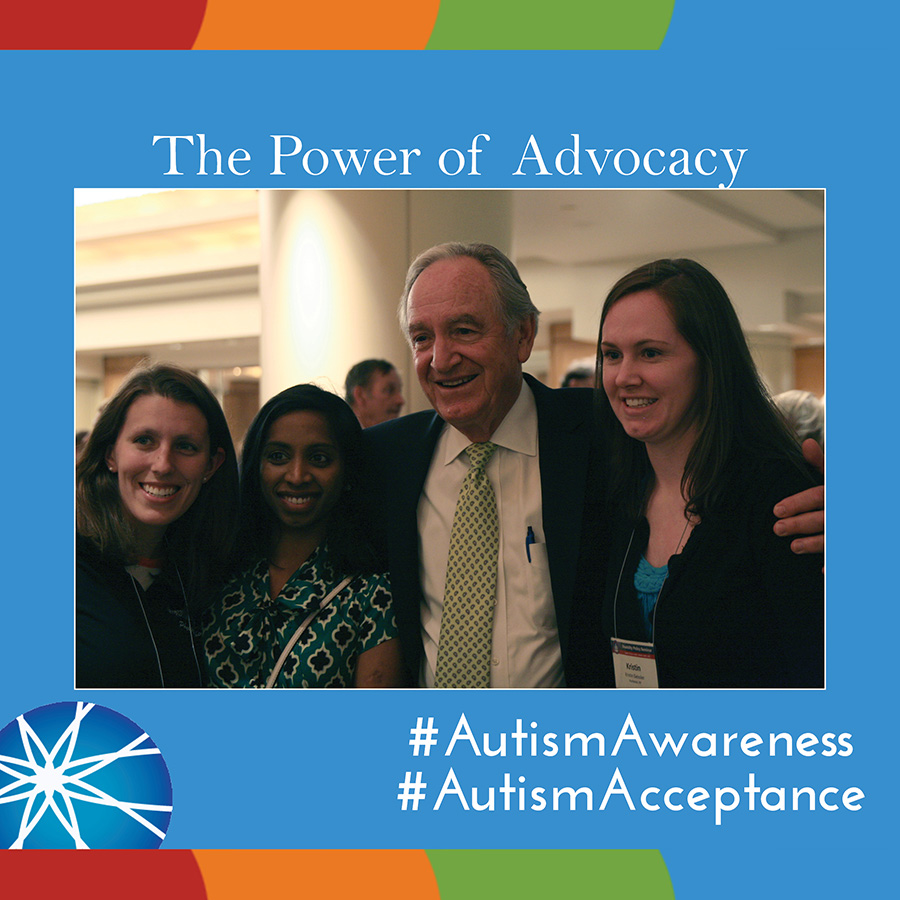 Hundreds of AUCD trainees are visiting Capitol Hill to educate their policymakers about the importance of disability supports and services. Follow the action at #DPS2015. Hundreds of AUCD trainees are visiting Capitol Hill to educate their policymakers about the importance of disability supports and services. Follow the action at #DPS2015.
|
space
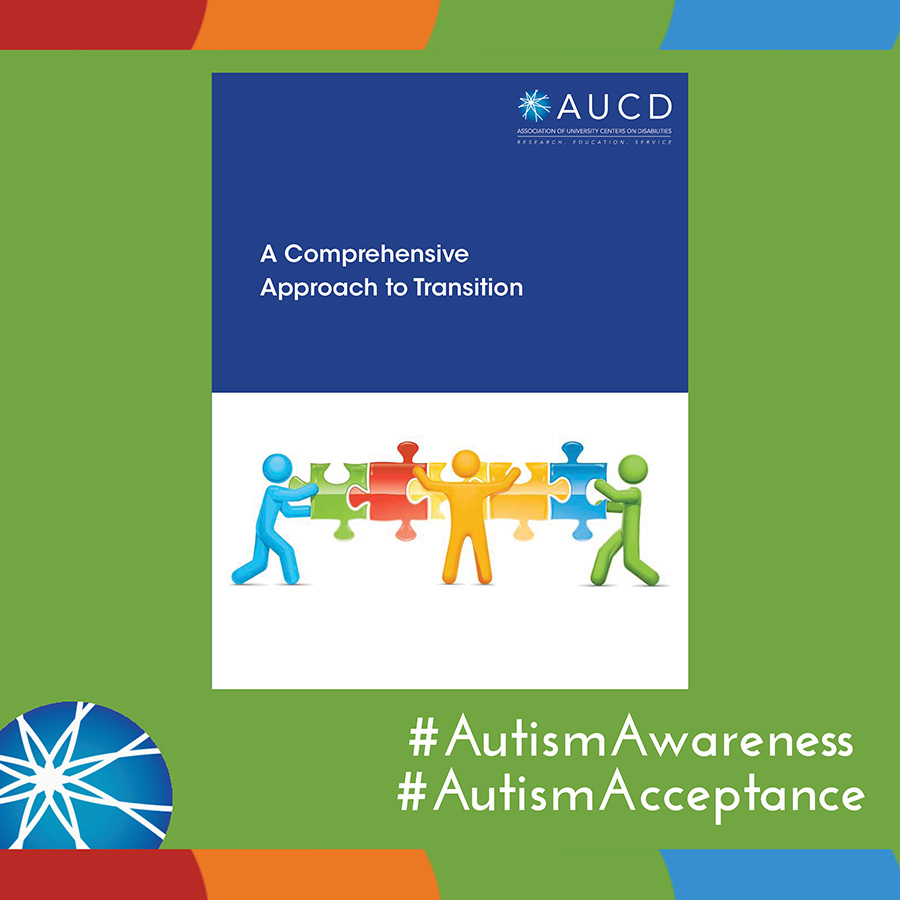 As youth leave school, they face several transitions, including work, community living, and adult health care. This booklet guides youth and their support system through thinking about transition planning and self-determination. As youth leave school, they face several transitions, including work, community living, and adult health care. This booklet guides youth and their support system through thinking about transition planning and self-determination.
|
|
space
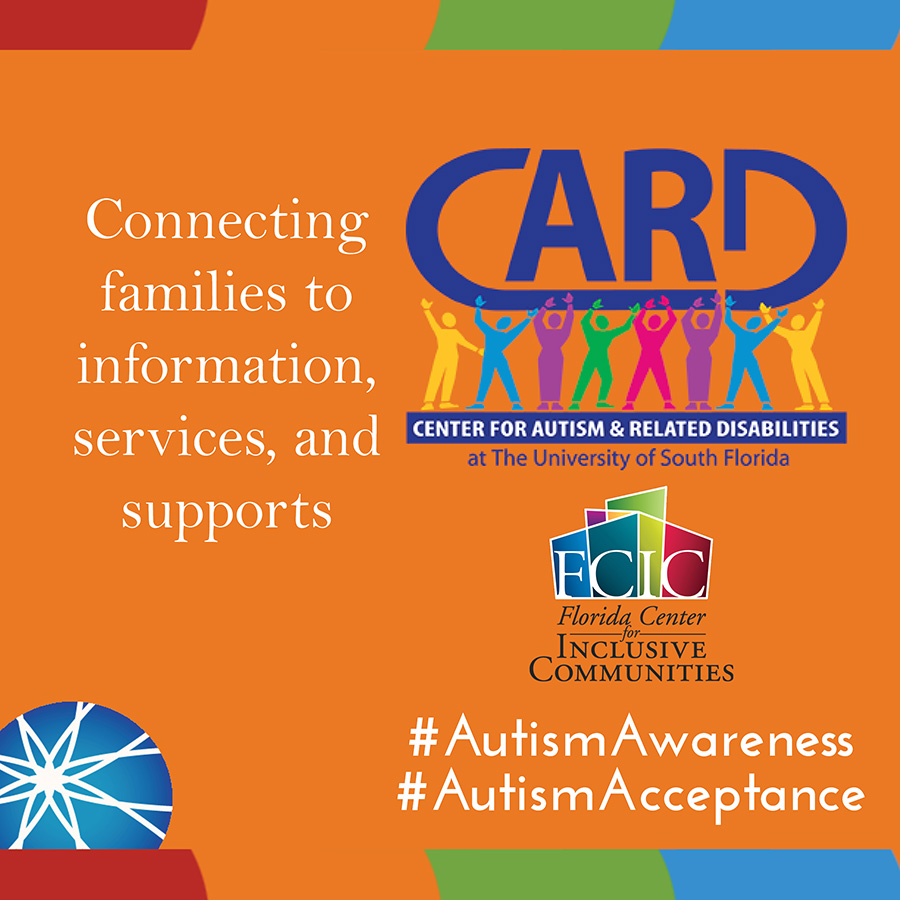 The Center for Autism and Related Disabilities (@cardusf) is a collaborative project between @FLCIC, our UCEDD at @USouthFlorida, and @EducationFL. Their staff develops and disseminates informational materials, conducts workshops and individual consultations, and helps connect individuals with #autism and their families across 14 counties to essential services and supports. The Center for Autism and Related Disabilities (@cardusf) is a collaborative project between @FLCIC, our UCEDD at @USouthFlorida, and @EducationFL. Their staff develops and disseminates informational materials, conducts workshops and individual consultations, and helps connect individuals with #autism and their families across 14 counties to essential services and supports.
|
space
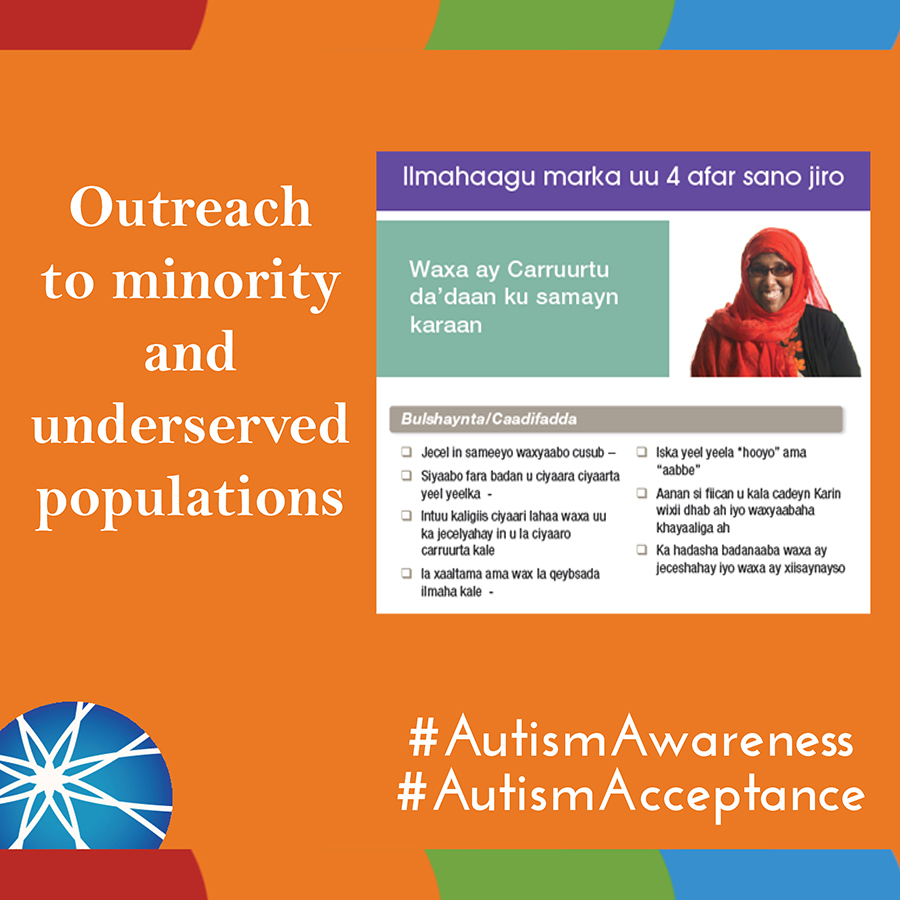 While national attention has focused on early screening for disabilities, significant disparities in screening, diagnosis, and intervention remain for children from diverse communities. The Minnesota Act Early team actively targets disparities in their community through outreach, building both awareness and capacity within local diverse communities. While national attention has focused on early screening for disabilities, significant disparities in screening, diagnosis, and intervention remain for children from diverse communities. The Minnesota Act Early team actively targets disparities in their community through outreach, building both awareness and capacity within local diverse communities.
|
|
space
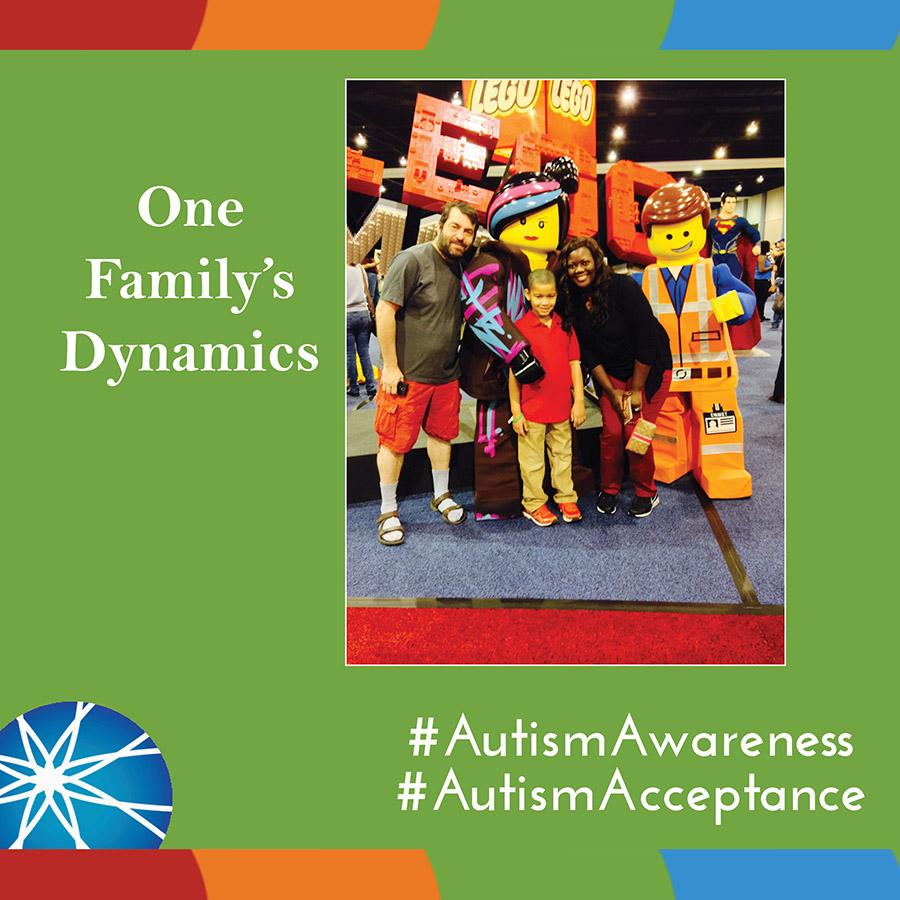 In this #policy4all segment, Liz interviews AUCD staffer Shannon Haworth about the joys and challenges of having both a spouse and child on the autism spectrum. In this #policy4all segment, Liz interviews AUCD staffer Shannon Haworth about the joys and challenges of having both a spouse and child on the autism spectrum.
|
space
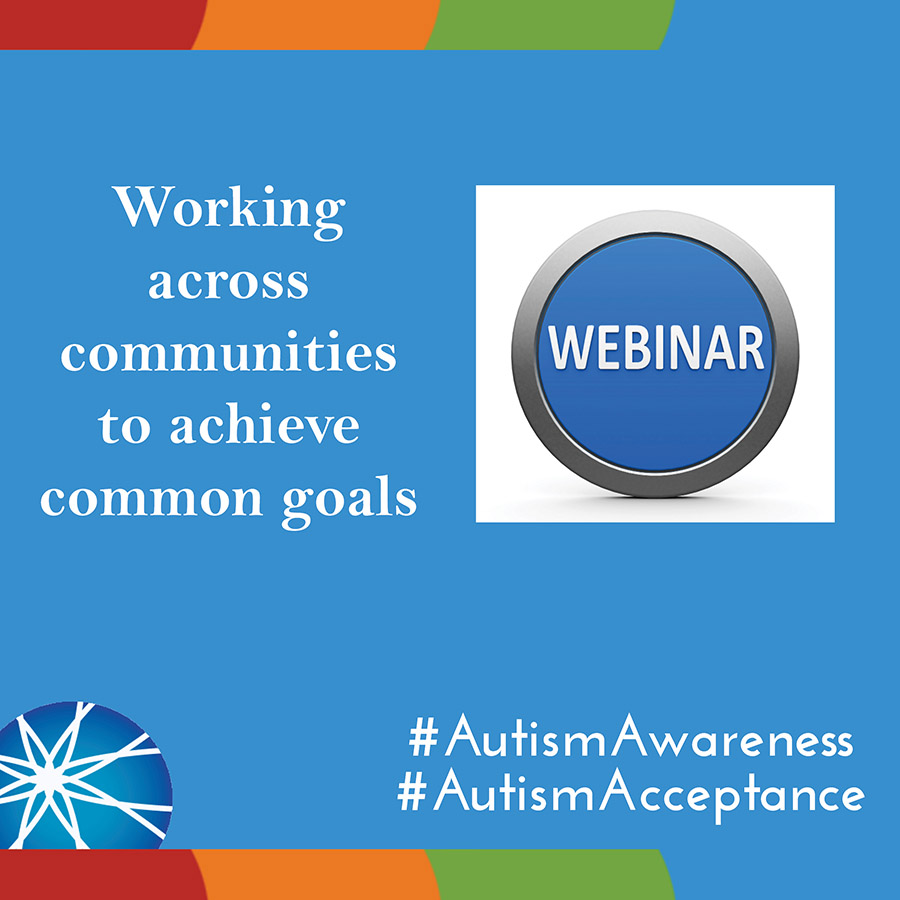 Collaboration is often the key to progress, and AUCD recognizes the importance of creating and sustaining dialogues between intersecting communities. Led by a presenter who self-identified as being on the autism spectrum, this 2014 webinar addresses possible spaces for coalitional activist work between the I/DD community and the LGBTQ+ community. Collaboration is often the key to progress, and AUCD recognizes the importance of creating and sustaining dialogues between intersecting communities. Led by a presenter who self-identified as being on the autism spectrum, this 2014 webinar addresses possible spaces for coalitional activist work between the I/DD community and the LGBTQ+ community.
|
|
space
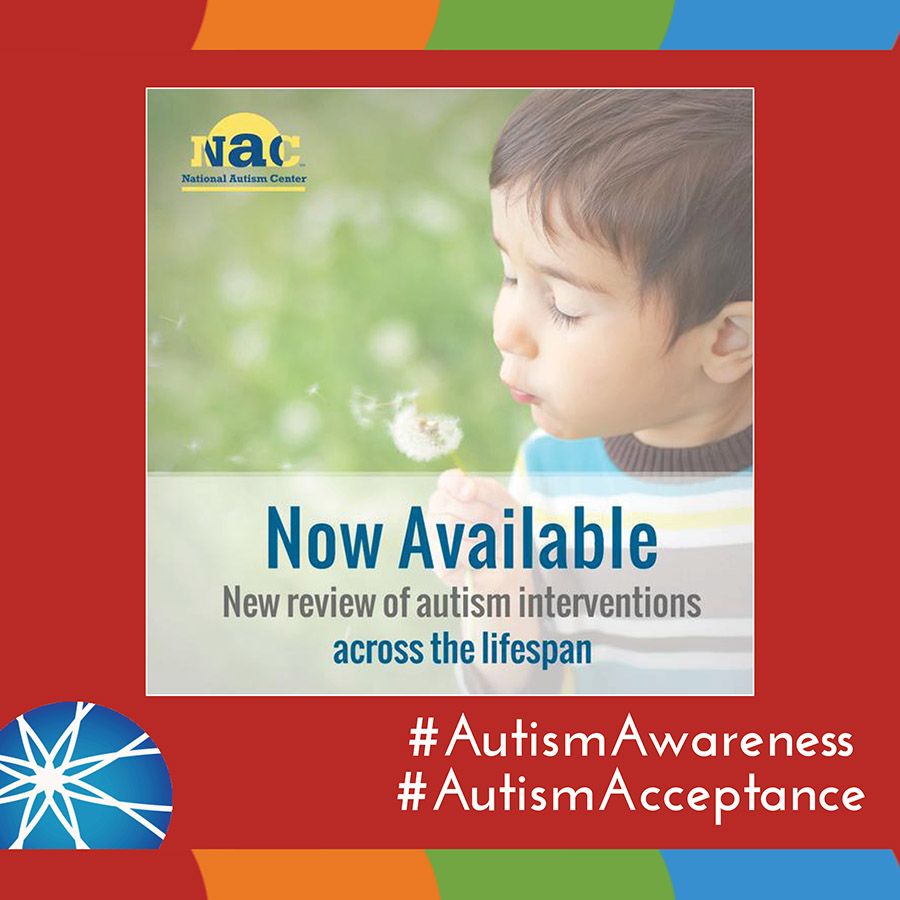 The National Autism Center has just released Phase 2 of their National Standards Project. This document provides up-to-date information on the effectiveness of a broad range of interventions for children and adults with ASD, based on research published since 2007. This can help self-advocates, families, and clinicians make more informed choices. Download it for free today. The National Autism Center has just released Phase 2 of their National Standards Project. This document provides up-to-date information on the effectiveness of a broad range of interventions for children and adults with ASD, based on research published since 2007. This can help self-advocates, families, and clinicians make more informed choices. Download it for free today.
|
space
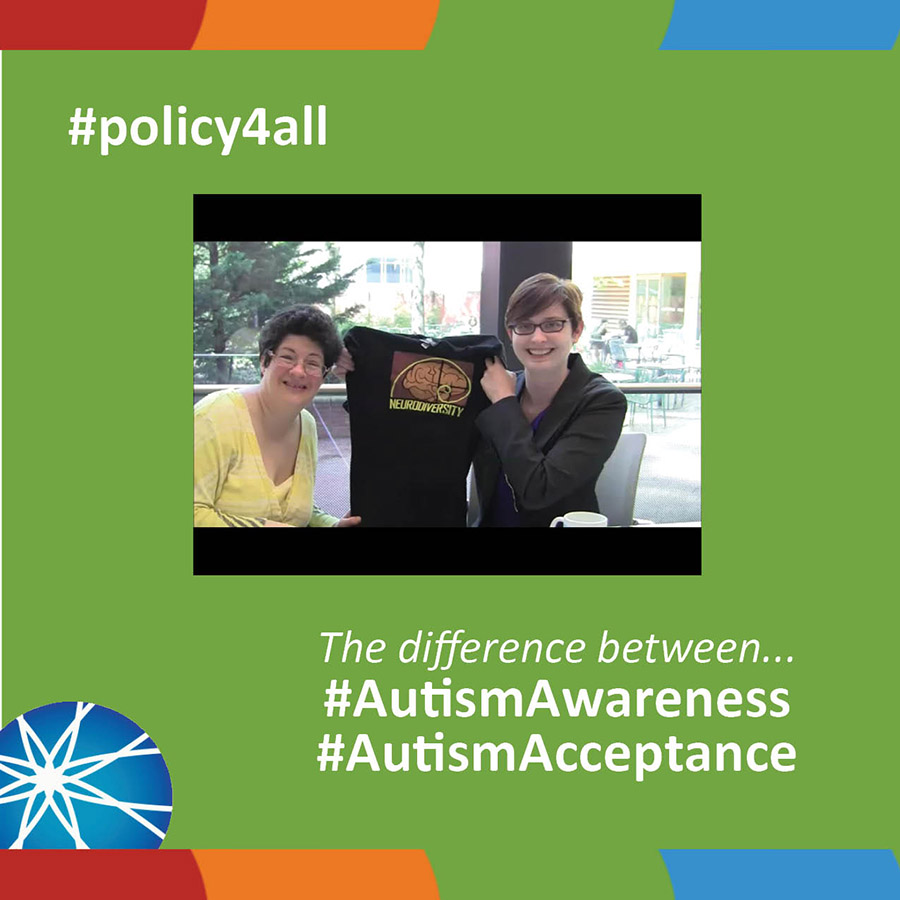 In a #policy4all bonus segment, Liz talks with Samantha Crane from the Autistic Self-Advocacy Network about the difference between #autismawareness and #autismacceptance. In a #policy4all bonus segment, Liz talks with Samantha Crane from the Autistic Self-Advocacy Network about the difference between #autismawareness and #autismacceptance.
|
|
space
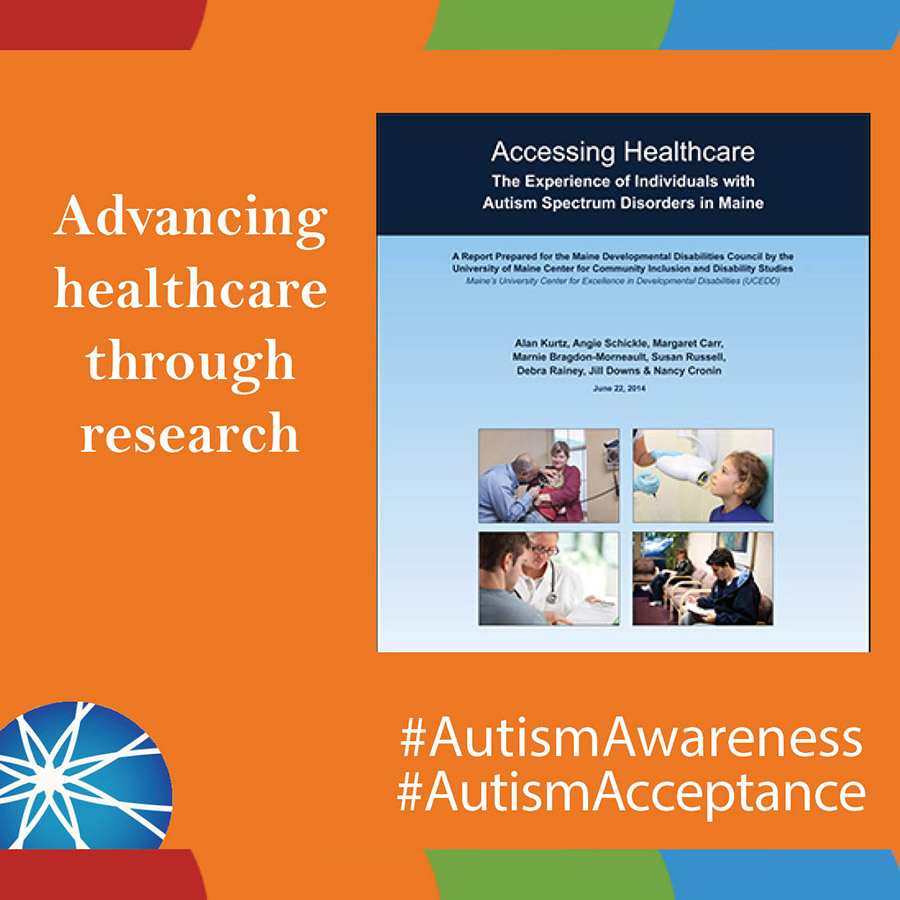 The Maine UCEDD and Developmental Disabilties Council recently published a research report on healthcare access for individuals with ASD in their state, revealing promising trends and several areas of concerns for children and adults. The Maine UCEDD and Developmental Disabilties Council recently published a research report on healthcare access for individuals with ASD in their state, revealing promising trends and several areas of concerns for children and adults.
|
space
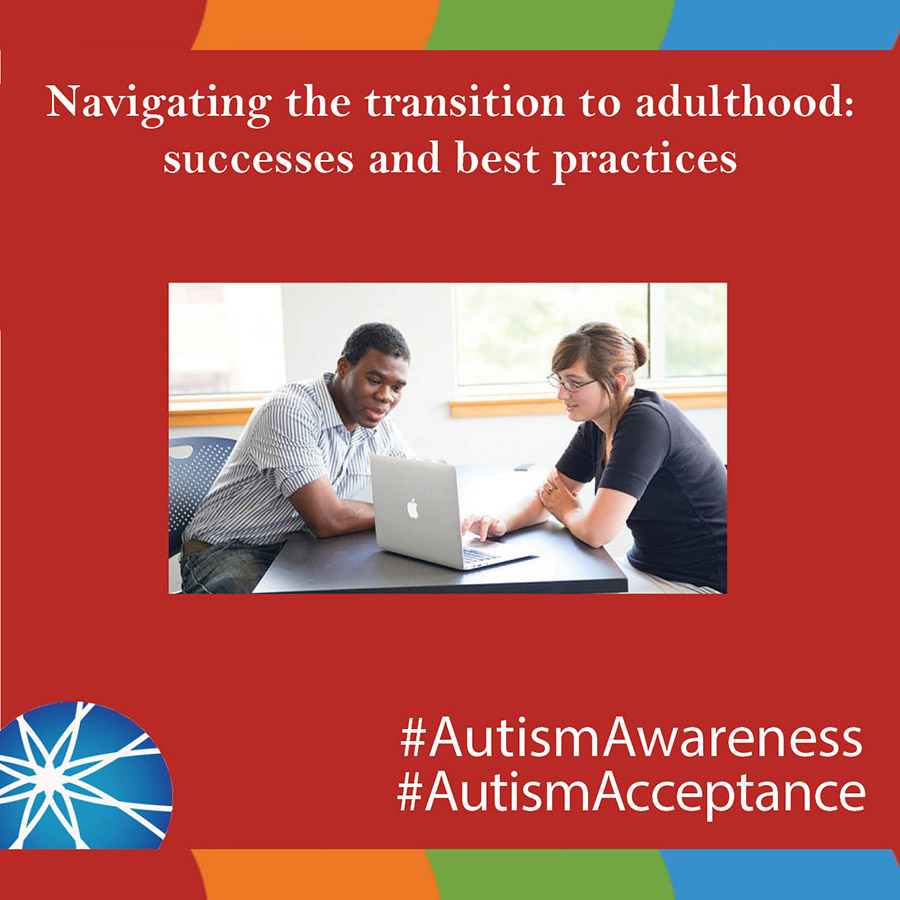 In 2014 alone, a total of 89,872 children received interdisciplinary services from AUCD network programs to confirm or rule out an autism or related diagnosis. For these families, it's never too early to start thinking about the services and supports these children will need as adolescents and adults. Watch this archived webinar for more information on this important time of transition. In 2014 alone, a total of 89,872 children received interdisciplinary services from AUCD network programs to confirm or rule out an autism or related diagnosis. For these families, it's never too early to start thinking about the services and supports these children will need as adolescents and adults. Watch this archived webinar for more information on this important time of transition.
|
|
space
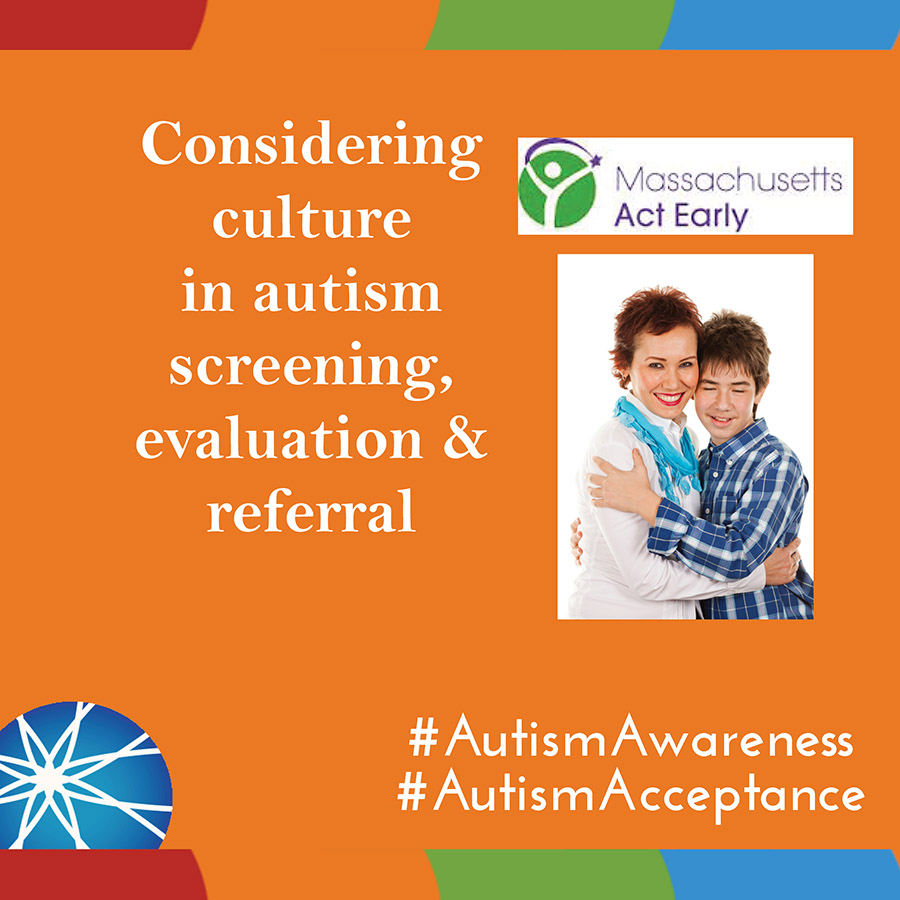 The Massachusetts Act Early team created a resource document for clinicians that provides guidance on culturally competent screening, evaluation, and referral to intervention services for children with autism and other developmental disabilities. The Massachusetts Act Early team created a resource document for clinicians that provides guidance on culturally competent screening, evaluation, and referral to intervention services for children with autism and other developmental disabilities.
|
space
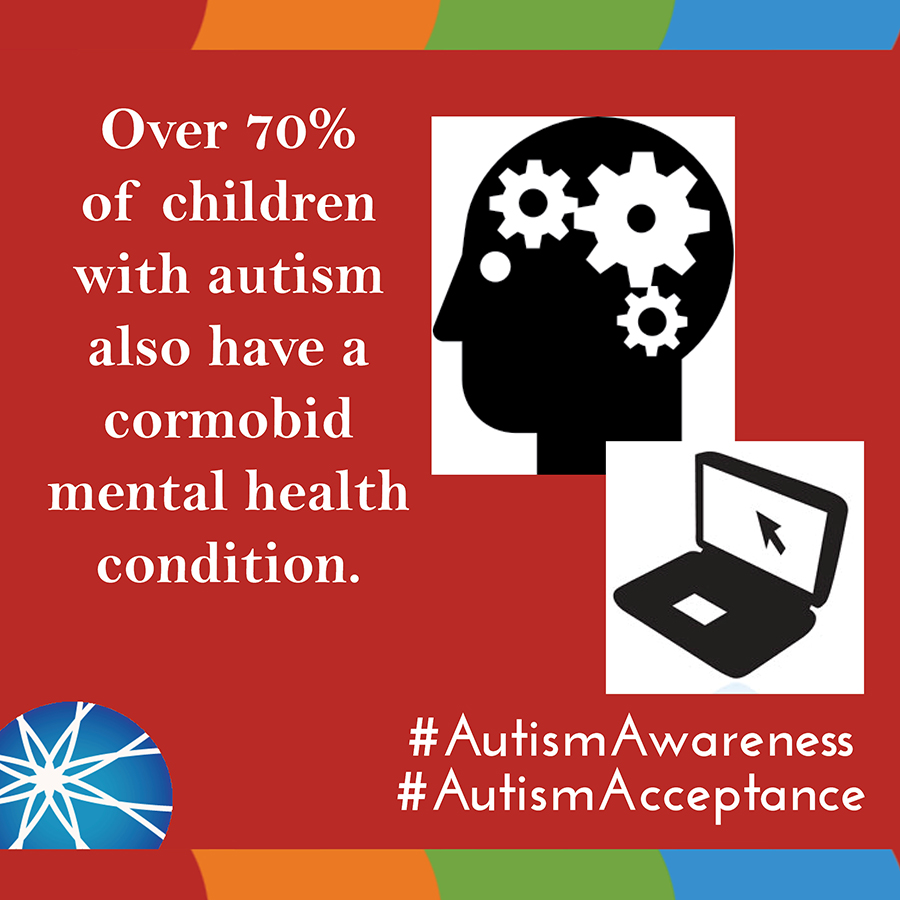 Over 70% of children with autism also have a comorbid mental health condition, which has an impact on the types of supports individuals may need across the lifespan. Learn more by watching the archive of the "Autism and Children's Mental Health" webinar, presented by AUCD's Autism Special Interest Group. Over 70% of children with autism also have a comorbid mental health condition, which has an impact on the types of supports individuals may need across the lifespan. Learn more by watching the archive of the "Autism and Children's Mental Health" webinar, presented by AUCD's Autism Special Interest Group.
|
|
space
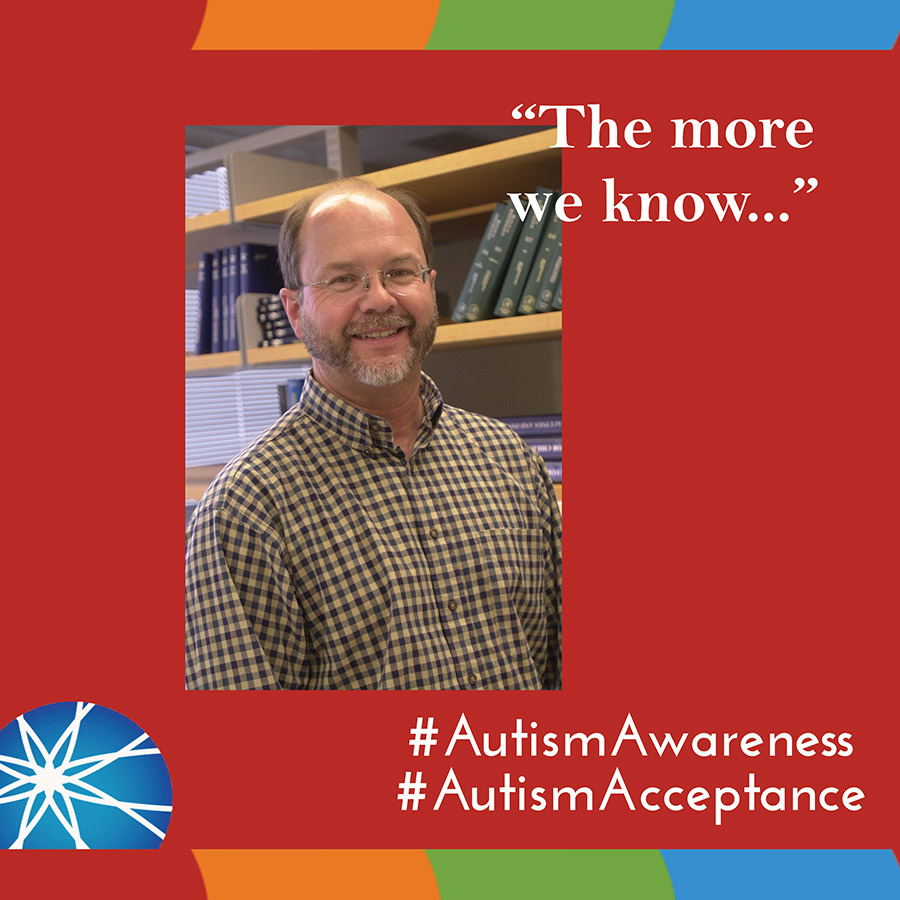 Dr. Daniel Coury of the Autism Intervention Research Network on Physical Health (AIR-P) highlights the importance of research in helping our collective ability to serve individuals with autism throughout their lives. Dr. Daniel Coury of the Autism Intervention Research Network on Physical Health (AIR-P) highlights the importance of research in helping our collective ability to serve individuals with autism throughout their lives.
|
space
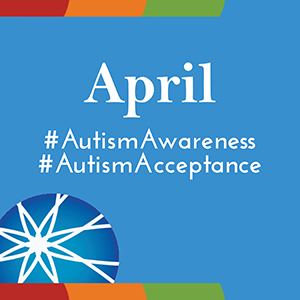 AUCD Celebrates Autism Awareness and Autism Acceptance. AUCD Celebrates Autism Awareness and Autism Acceptance.
|




 AUCD partners with several organizations that provide information and support to families who have a child (or adult family member) with autism.
AUCD partners with several organizations that provide information and support to families who have a child (or adult family member) with autism.



























